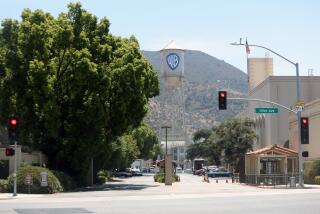Newport Beach’s Charter Savings Seized; Criminal Inquiry Is Asked : Banking: Regulators refused to expand on their call for an investigation, except to say that they have made “referrals” to the U.S. Justice Department.
- Share via
NEWPORT BEACH — Charter Savings Bank, which had targeted struggling thrifts in its aggressive acquisition plan, was itself declared insolvent Friday and seized by federal regulators, who also called for a criminal investigation into possible wrongdoing at the thrift.
The 12-year-old savings and loan suffered losses that depleted “substantially” all of its capital, its last reserve against losses, and had no prospect of getting more funds, said the Office of Thrift Supervision, the federal agency that seized it.
Charter, a state S&L; in Newport Beach, was put in receivership and its $308.6 million in assets, as of April 30, were turned over to a newly chartered federal institution called Charter Savings Bank, FSB, which will open on Monday for business as usual at its Newport Beach office and three branches in Los Angeles.
The thrift’s deposits, nearly $295 million at the end of last year, continue to be federally insured up to $100,000 per account holder. OTS appointed the Resolution Trust Corp., the federal agency that manages failed thrifts, as conservator of the new S&L.;
Regulators would not expand on the request for a criminal investigation except to say that they have made “a number of referrals” to the U.S. Justice Department. They said the institution also was operating in an unsafe and unsound manner.
Charter is the fourth Orange County savings and loan to be seized by regulators this year and the 19th taken over in the last five years as the debacle in the thrift industry and stiff new laws enacted last year add to the tally of government takeovers.
The government’s action wipes out the ownership interest of Mola Development Corp., a Newport Beach company that owned 90% of Charter.
It is unclear what effect the government’s action will have on Mola, which is proposing a controversial 329-unit residential project on the Hellman Ranch property in Seal Beach and a 164-unit, 15-story residential condominium and commercial complex in Irvine.
Neither Frank Mola, president of Mola Development, nor Jon Maddox, Charter’s president, could be reached for comment.
Regulators blamed the thrift’s condition on bad loan record-keeping, investment losses, lack of internal controls, bad management and continuing problems stemming from its 1988 acquisition of the failing Merit Savings Bank in Los Angeles.
In acquiring Merit, Charter picked up more bad loans and other nonperforming assets than it expected and wound up increasing the level of goodwill, an intangible asset that must be written off over time. At the end of last year, Charter had nearly $18 million in goodwill, which can no longer be used in its calculations of capital for regulatory purposes.
With net losses of $1.5 million last year and $718,000 in the first quarter of 1990, Charter was insolvent under all three tests of financial health used by regulators.
Under generally accepted accounting principles, however, Charter would appear to be solvent with $6.7 million in equity over its $301.9 million in liabilities, as of the end of April.
“There’s a suggestion of living high in their financial statements,” said Bert Ely, an Alexandria, Va., industry consultant. “It looks like they had some fat salaries in there.”
Operating expenses last year were about 30% of the institution’s gross income, said Gerry Findley, a Brea industry consultant. He said he considers a 20% ratio to be too high.
Charter has had a colorful past.
It was founded as Orange Coast Savings & Loan by flamboyant Douglas Patty and other directors at the once-mighty Heritage Bank in Anaheim. But after Heritage failed in 1984, the thrift found itself mired in the ensuing federal litigation against Patty and others. They later sold their interest to Mola.
In 1988, Mola decided to use its expertise in real estate to buy thrifts that were failing from their bad real estate operations. After buying Merit Savings, Mola quickly tried to snap up three more thrifts, but the deals fell through.
Last year, Charter’s financial condition grew shaky as Merit’s bad assets continued to sour. Then the new federal law enacted to bail out the thrift industry’s deposit insurance system eliminated goodwill and set up such strict standards for capital that Charter was doomed.
More to Read
Inside the business of entertainment
The Wide Shot brings you news, analysis and insights on everything from streaming wars to production — and what it all means for the future.
You may occasionally receive promotional content from the Los Angeles Times.










